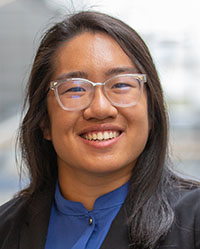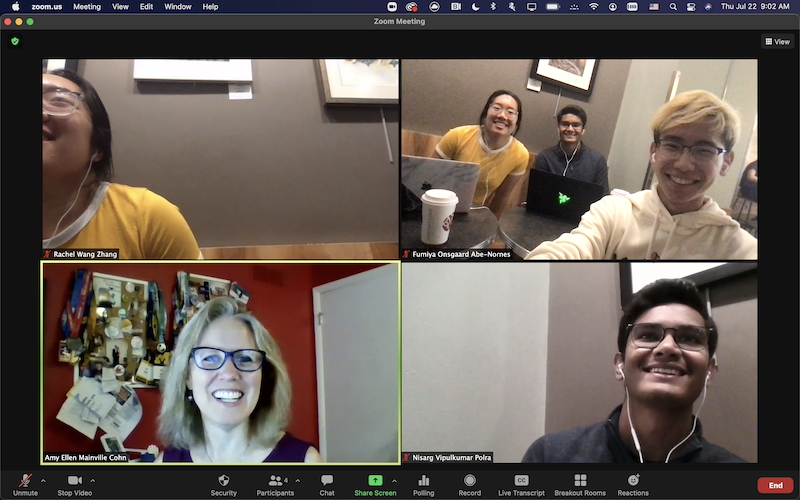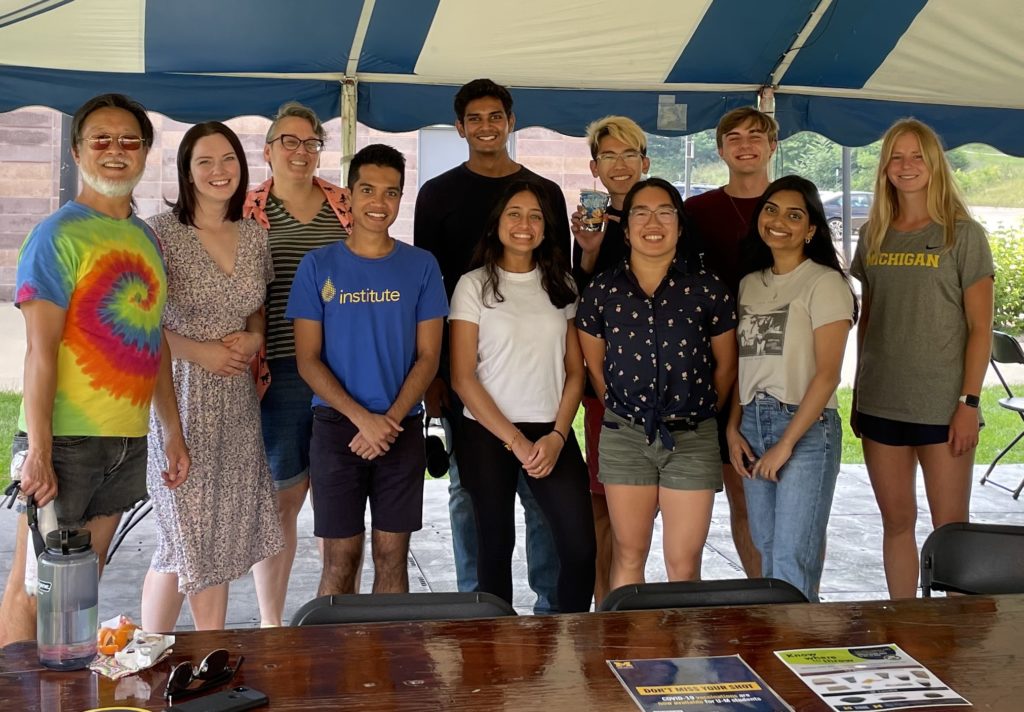
Hi! I’m Prachi Fozdar, a Business and Engineering undergraduate working as a communications assistant at CHEPS. I recently got the chance to interview Rachel Zhang, a junior in Biomedical Engineering on the pre-med track. Rachel started at CHEPS this past summer, making this winter her third term.
Rachel’s story of joining CHEPS is one she describes as “a series of various connections and coincides which led to CHEPS at the same time.” While looking for a capstone project for the engineering honors program, Rachel came across CHEPS. She said, “One of my advisors, Emmett Springer, is a CHEPS alum and knew my interests in healthcare optimization and that I was looking for a capstone, so he referenced me towards CHEPS. It sounded familiar, and it turned out another girl in my section in the marching band, Laura Hattar, is also a CHEPS alum. After talking with both of them, I realized that CHEPS was a perfect fit for me.”
Since joining CHEPS, Rachel has worked on the Surgical Competency and State Hospital Staffing projects. Rachel describes the State Hospital Staffing project as “the most core example of a CHEPS project and what it looks like. This project particularly involved collaborating with Michigan state psychiatric hospitals and working with their scheduling. Rachel elaborated how they provided the team “a whole suite of graphs and numbers about whether they need to update their staffing, focus on certain employees, and overall just the systems optimization CHEPS is known for.” Rachel and the rest of the State Hospital Staffing team then adapted this spreadsheet for multiple state hospitals across Michigan. While they haven’t received direct feedback from nurses and those being put on the schedule they created, Rachel emphasizes that, from the team’s interactions with the nursing and staffing coordinators that send CHEPS their schedules, “you can see that they feel very assured in our technical expertise and that they really trust we will provide them with an accurate analysis.”
The other project Rachel worked on, Surgical Competency, is what she describes as “a more unique student-run research project where we have done a lot of literature review studying about skill decaying of surgical residents.” Surgical residency tends to last 4-6 years as residents practice surgical skills until they gain full competency and can operate on their own, but “this learning model isn’t ideal since everyone learns differently,” Rachel explained. By using code models and analyzing numerous literature reviews, Rachel highlights that “they’re trying to prove the various factors that go into picking up a skill.” Moving forward, Rachel elaborates that “the hope for this project right now is to write a couple of papers and get them accepted into surgical education journals. Right now, we’re just revising and waiting for our clinical collaborator to edit and review our work.”

Such projects are quite different from Rachel’s usual schoolwork she explains. “Not a lot of what I learn in my schoolwork as a Biomedical Engineering major transfers to CHEPS, but all of it has further developed my interests in healthcare.” Rachel particularly values that CHEPS helped her better understand the importance of looking at the bigger picture when analyzing a problem and to “look at the multiple stakeholders involved beyond just doctors and patients.” Besides this, Rachel emphasized the importance of the interdisciplinary perspectives at CHEPS in terms of working with people across different majors and backgrounds. She’s learned to apply these principles to all problem-solving, not just in healthcare.

When it comes to balancing her time at CHEPS, the marching band, and other schoolwork, Rachel emphasizes the flexibility of the CHEPS work culture. “Our bosses are first of all super understanding and you can choose your commitment per term as well as just letting them know your workload is too much, too little, or just right. Professor Cohn’s son is also in the marching band, so she’s really aware and understanding about the time commitment. Overall, it’s just a super healthy work culture.” Besides this, Rachel’s favorite thing about working at CHEPS has been getting to know other CHEPSters; she hopes to be able to meet more of them in person this year.
